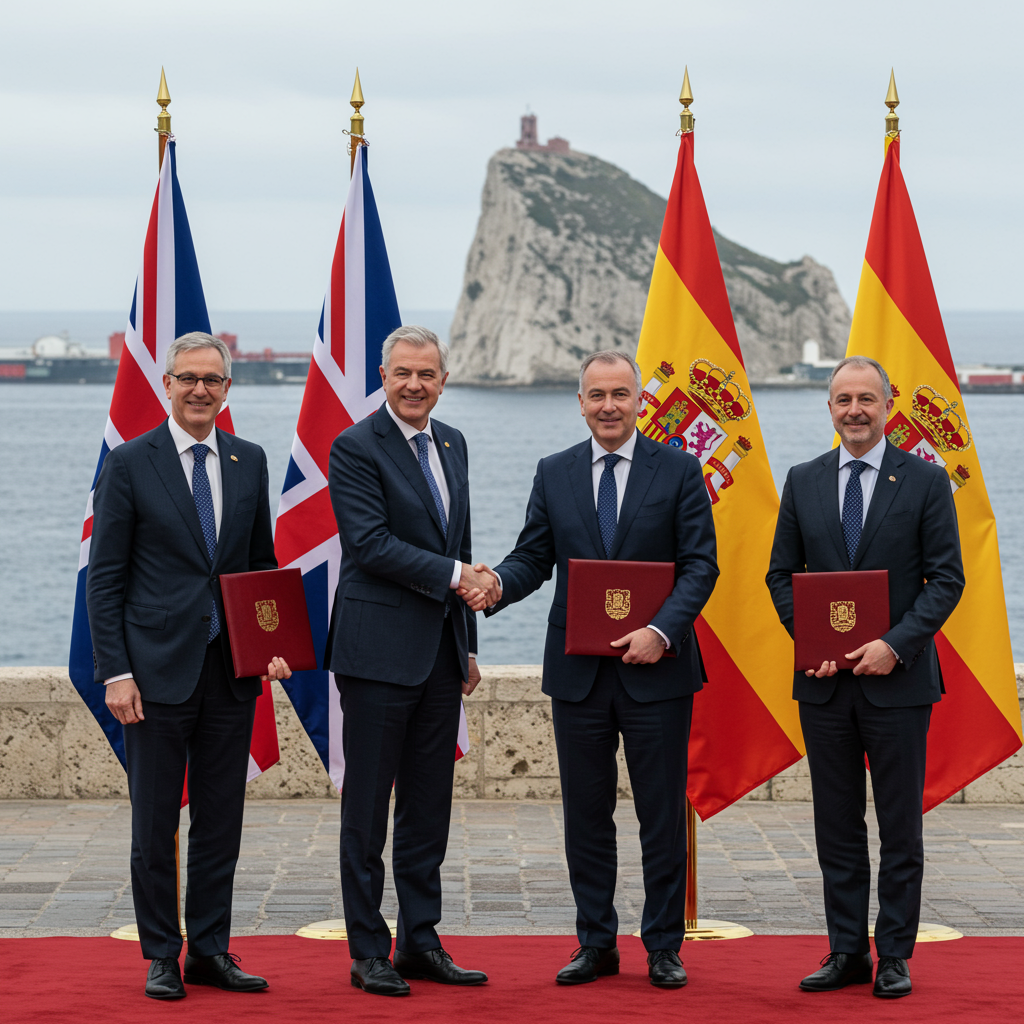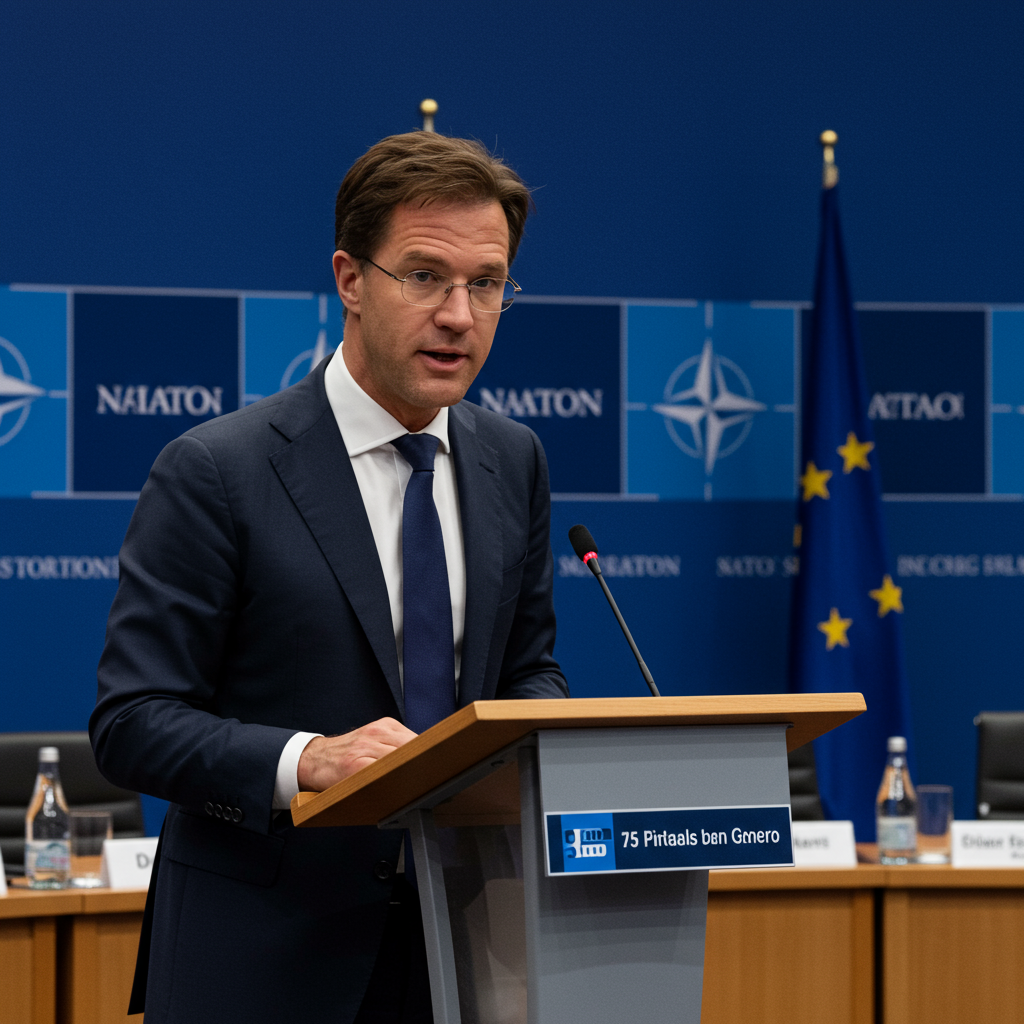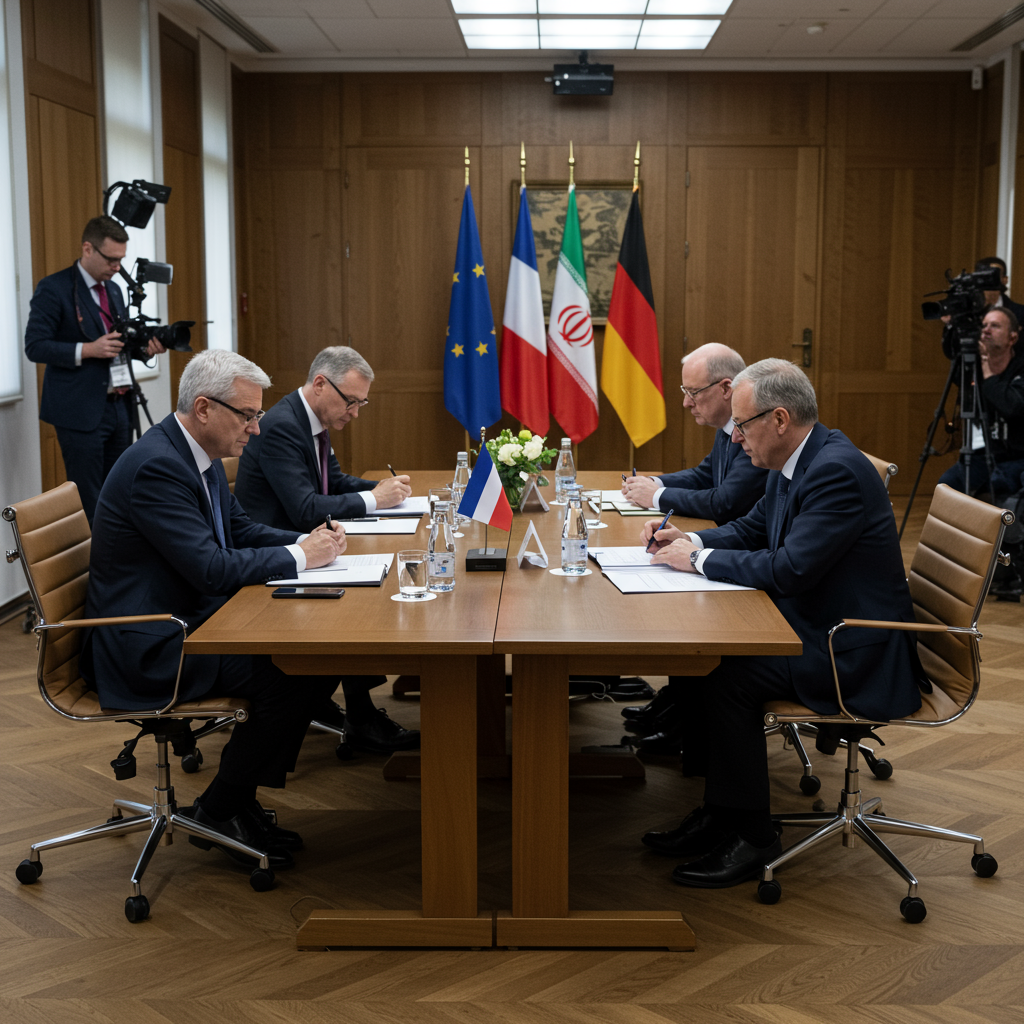Gibraltar’s Future: A Landmark Post-Brexit Border Agreement Reached
A “historic” agreement has finally been struck between the UK and Spain regarding the future status of Gibraltar following Britain’s departure from the European Union. Announced after years of complex negotiations, the deal aims to resolve the last major outstanding issue stemming from Brexit and significantly ease movement across the sensitive border with Spain.
Hailed by officials from all sides, the agreement is seen as bringing down “the last wall” on the continent and ushering in a “new beginning” for relations between the UK and Spain. It seeks to provide legal certainty and confidence for the people and businesses in the region, preventing the imposition of a potentially disruptive “hard border.”
Key Details of the Agreement
The core of the agreement establishes a new framework for crossing the frontier:
Open Land Border: The deal ensures fluid movement with no physical barriers or routine checks on people and goods crossing the land frontier between Gibraltar and the neighbouring Spanish town of La Linea. This is particularly crucial for the estimated 15,000 individuals who cross daily, including thousands of Spanish residents forming a significant part of Gibraltar’s workforce.
Dual Checks at Air & Sea: For arrivals by air and sea at Gibraltar’s airport and port, a system mirroring the pre-clearance model used for Eurostar rail passengers will be implemented. This involves travellers undergoing dual border checks conducted jointly by officials from Gibraltar and Spain.
A key function for Spanish officials at the airport and port will be ensuring the integrity of the EU’s Schengen free-travel area.
Impact on Travellers and Schengen Rules
While the land border aims for seamless crossing, the application of Schengen rules to non-resident Britons arriving by air or sea is a significant implication of the deal.
Under the agreement, British citizens not resident in Gibraltar could be subject to standard Schengen regulations, including the limit of staying no more than 90 days within any 180-day period across the entire Schengen zone without a visa.
Spanish border officers stationed at Gibraltar’s air and sea entry points would consequently have the authority to refuse entry to individuals based on these Schengen rules. This specific aspect has drawn scrutiny, with some opposition parties in the UK expressing concern about European officials potentially having final authority over entry for British nationals into a British territory.
However, negotiators emphasize that immigration and law and order within Gibraltar itself will remain the exclusive responsibility of Gibraltar’s own authorities.
Sovereignty Remains Unchanged
Crucially, a central point stressed by all parties is that the agreement explicitly does not affect Britain’s sovereignty over Gibraltar. A specific clause to this effect was included and agreed upon by the UK, Spain, and Gibraltar. British military facilities on the Rock will also retain their operational autonomy. Gibraltar’s Chief Minister, Fabian Picardo, affirmed that the deal protects the sovereignty of “British Gibraltarians,” a sentiment echoed by UK Foreign Secretary David Lammy.
Reactions and Broader Significance
The agreement was broadly welcomed by leaders involved in the process.
UK: Foreign Secretary David Lammy described it as a “practical solution after years of uncertainty,” stating the UK’s commitment to Gibraltar remains “as solid as the Rock itself.” Prime Minister Keir Starmer spoke with Chief Minister Picardo, agreeing the deal unlocks a secure future and allows long-term planning while protecting British sovereignty.
Spain: Foreign Affairs Minister José Manuel Albares hailed it as a “historic agreement” bringing down “the last wall” and guaranteeing free movement. Prime Minister Pedro Sánchez called it a “great day” and a “global agreement” advancing the bilateral relationship after three centuries of contention.
Gibraltar: Chief Minister Fabian Picardo celebrated the “historic agreement” for providing legal certainty and protecting future generations of British Gibraltarians without affecting sovereignty.
EU: Commissioner Maroš Šefčovič called it a “truly historic milestone” for the EU, Spain, the UK, and Gibraltar, seeing it as evidence of a “new chapter” in EU-UK relations that provides legal certainty and confidence. European Commission President Ursula von der Leyen added that the deal safeguards the integrity of the Schengen area and the Single Market while ensuring stability and prosperity for the region.
While widely praised by the negotiators, the deal has faced criticism from some quarters in the UK, particularly from opposition parties concerned about the implications of potential entry denials by Spanish officials and questioning whether the agreement fully protects British interests and sovereignty.
Background and Next Steps
Gibraltar has been a British overseas territory since 1713, though Spain continues to claim sovereignty. The people of Gibraltar have consistently rejected shared sovereignty proposals in referendums. Negotiations for a post-Brexit arrangement have been ongoing since 2020 when the UK, and consequently Gibraltar, left the EU customs union and lost guaranteed freedom of movement. As part of the broader package, Gibraltar reportedly made certain concessions, including on taxation like tobacco VAT, aimed at addressing concerns around smuggling.
The focus now shifts to finalizing the legal text based on the political agreement reached, preparing it for formal ratification by all parties involved. The deal is expected to unlock significant opportunities and provide much-needed stability after years of uncertainty surrounding the frontier’s status.



